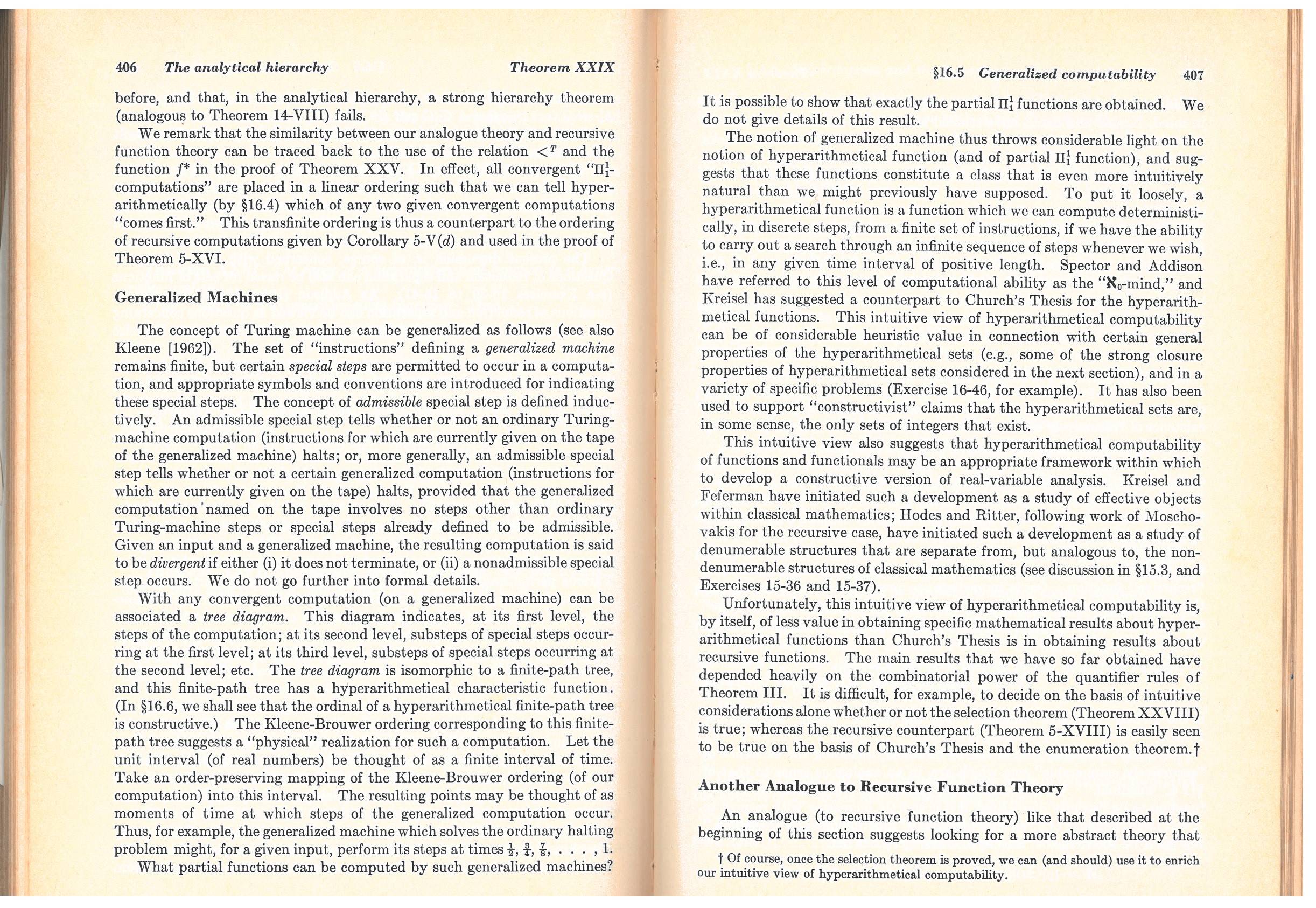
Regarding oracles, might this be a reasonable description of their inner workings (this from Hartley Rogers, Jr.'s text, Theory of Recursive Functions and Effective Computability)?
Why should I ask such a question in the face of majority opinion to the contrary (as expressed in Prof. Bauer's answer)? Well, let me begin at the beginning, with Turing's remarks regarding 'oracles' found in his doctoral thesis, "Systems of Logic Based on Ordinals" (pp. 13–14):
Let us suppose that we are supplied with some unspecified means of solving number theoretic problems; a kind of oracle as it were. We will not go any further into the nature of this oracle than to say that it cannot be a machine….
What sort of 'machine' is Turing talking about? Well, considering that his doctoral thesis was written after the paper that introduced the notion now known as the "Turing Machine", it should be clear from Section 2 of his thesis, "Effective calculability. Abbreviation of treatment", that it is, in fact, the Turing machine he is referring to in his remarks regarding the oracle. As regards the notion of "number theoretic problem", he defines it as follows in Section 3, "Number theoretic theorems":
By a number theoretic theorem we shall mean a theorem of the form '$\theta$ vanishes for infinitely many natural numbers $x$', where $\theta(x)$ is primitive recursive [a primitive recursive function—my comment]. We shall say that a problem is number theoretic if it has been shown that any solution of the problem solution may be put in the form of a proof of one or more number theoretic theorems. More accurately we may say that a class of problems is number theoretic if the solution of any one of them can be transformed (by a uniform method) into the the form of proofs of number theoretic theorems.
It is within this context I proposed that the generalized machines discussed in Hartley Rogers Jr.'s book might act as oracles for a certain class of problems (though not in general).
As regards the notion that oracles are merely 'inputs' or a 'database', I refer the reader of this question to a remark made by Martin Davis in his short paper, "Why there is no such discipline as hypercomputation", Applied Mathematics and Computation 178 (2006) 4-7:
The great day has arrived! The world's first working hypercomputer has been unveiled. Here comes the output—guaranteed by the engineers to be a non-Turing-computable infinite sequence of natural numbers:
23, 5, 1267, 111, 59, 87654, 21, 1729, 88888881, etc.
But wait! No matter how long this goes on, we will see only a finite number of outputs. Moreover, any such finite sequence of natural numbers is the initial part of both computable and non-computable infinite sequences (in fact, infinitely many of each kind). Thus, no finite amount of data will suffice to distinguish the computable from the non-computable, and since we, as finite beings with finite lifetimes will only have access to a finite amount of data, no possible experiment could certify that a device is truly going beyond the Turing computable.
